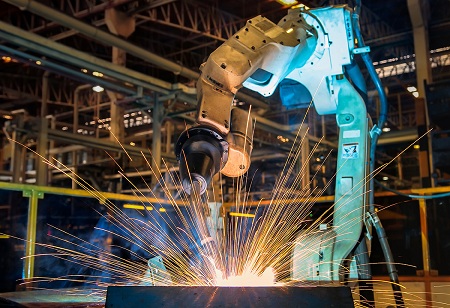
Maximizing efficiency and productivity is critical for organizations to remain competitive and satisfy rising expectations in today's fast-paced industrial world. Integrating special purpose machines (SPMs) into the manufacturing process is one of the most efficient methods to achieve these objectives. SPMs are custom-designed machines that are programmed to do specific tasks, allowing for more efficient operations and higher production.
Special-purpose machines are becoming increasingly important in the industrial sector as a means of enhancing efficiency and productivity. Because of rising demand from the industrial, automotive, and other industries, the market for these devices is rapidly expanding. By 2025, the global market for special-purpose machines is estimated to be worth more than USD 10 billion.
This is because these devices can automate operations and optimize manufacturing, resulting in increased efficiency and productivity. They are also less expensive than traditional machines since they may be customized to fit unique demands. This has raised demand for special-purpose equipment, resulting in the market's fast rise. While the worldwide special-purpose machine industry is expanding fast, it is not without problems.
Tailored Solutions for Specific Tasks
Special Purpose Machines are designed to accomplish specialized tasks with more precision and accuracy than standard machinery. Unlike ordinary machines, which are built for broad purposes, SPMs are developed to answer the specific issues that enterprises in their particular sectors confront. As a consequence, businesses may achieve unprecedented efficiency in formerly time-consuming and labour-intensive processes.
SPMs, for example, can be used in the automobile sector for operations such as engine assembly, welding, and painting. These robots are programmed to perform accurate measurements and repeated tasks with minimum human interaction, lowering the possibility of error and boosting product quality. This degree of precision improves efficiency and assures constant production, favourably influencing the assembly line's total productivity.
Furthermore, the adaptability of SPMs enables firms to swiftly respond to changing requirements. Organizations may adopt or reprogram these machines to handle new duties as technology and market demand advance, making them a precious asset in dynamic sectors.
Reduction in Production Time and Costs
One of the most obvious advantages of adopting SPMs into industrial processes is the large decrease in production time and costs. Businesses may minimize human mistakes, reduce the waste of raw resources, and improve production schedules by automating certain processes. As a result, the time required to accomplish a task greatly decreases, resulting in shorter turnaround times and improved productivity.
SPMs, for example, may be adapted to efficiently manage the packaging of various items in the packaging business. These devices can measure, sort, and pack things precisely and quickly, expediting the entire packaging process. As a result, producers can meet tight deadlines, manage large volumes of orders, and adapt quickly to market needs, eventually increasing productivity.
SPMs also assist to reduce operating expenses. Although custom-built gear may need a greater initial expenditure than off-the-shelf options, the long-term advantages far surpass the expenses. Businesses that improve their efficiency can produce more with fewer resources, resulting in considerable long-term cost savings.
Improved Safety and Work Environment
Employee safety and well-being are critical in every workplace. SPMs help to provide a safer workplace by eliminating the need for workers to do dangerous or physically demanding jobs. These machines are built with extensive safety measures and automatic routines to reduce the possibility of accidents and injuries.
SPMs can be used in high-risk sectors such as mining or construction for tasks such as material handling or welding. Companies may safeguard their workers from potentially hazardous conditions by substituting manual labour with automated technology, resulting in a more motivated and happy workforce.
Furthermore, SPMs help to a more pleasant working environment. These devices relieve employees of boring labour by managing repetitive and arduous duties, allowing them to focus on more intellectually challenging and inventive elements of their occupations. This can result in better work satisfaction, lower staff turnover, and overall team morale.
Special Purpose Machines have proven to be game changers in sectors looking to improve efficiency and production. These tailor-made machines provide specialized solutions for specific jobs, allowing businesses to attain exceptional precision and accuracy. Furthermore, the decrease in production time and costs, as well as enhanced safety and work conditions, make SPMs a vital tool for any firm wanting to stay ahead of the competition in today's competitive scenario.
As technology advances, the potential of Special Purpose Machines will expand, providing organizations with new options to simplify operations and boost productivity to new heights. Embracing this revolutionary technology is no longer a choice, but rather a need for businesses seeking long-term development and success.
We use cookies to ensure you get the best experience on our website. Read more...